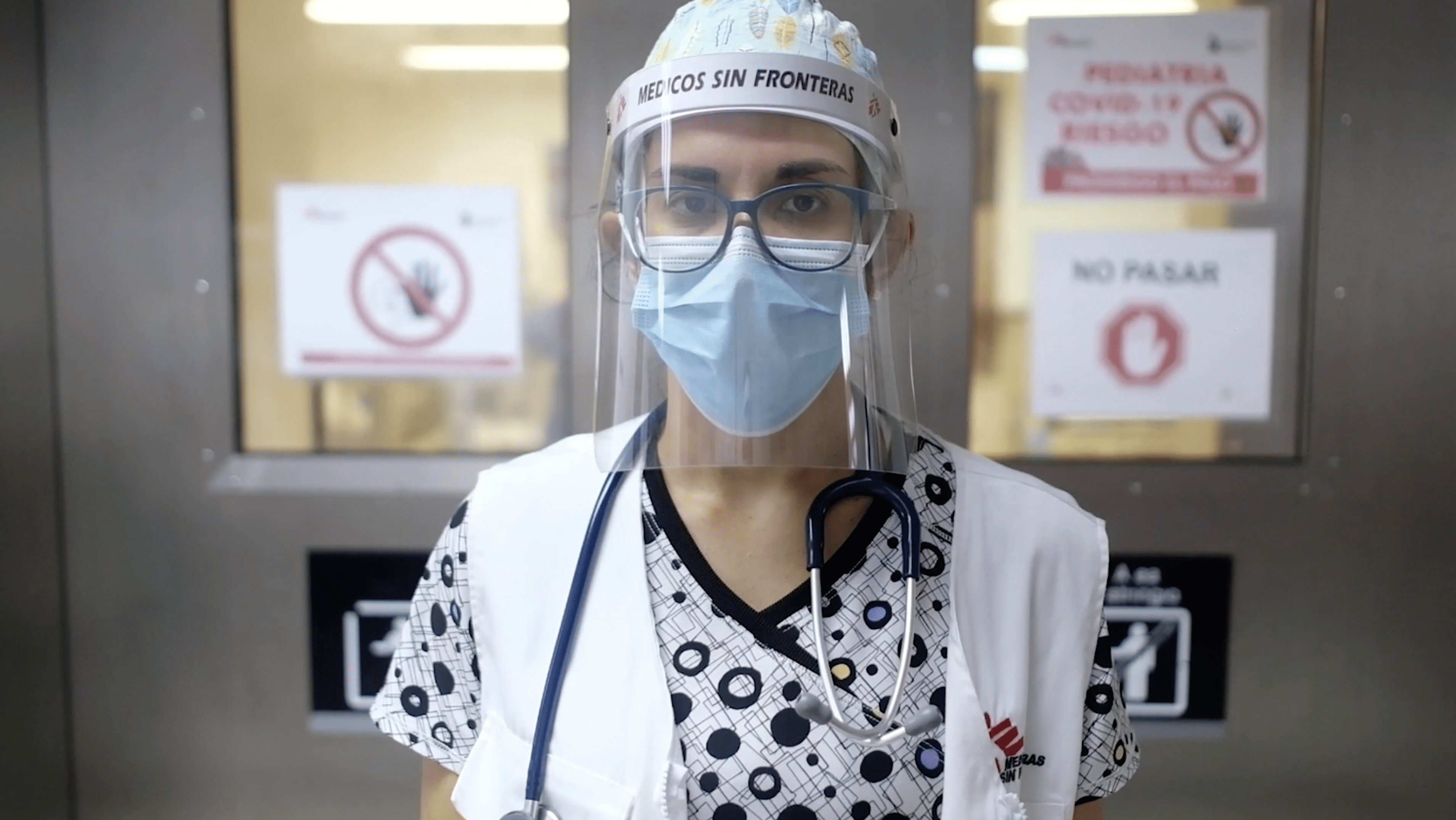Humanitarian aid workers experience moral dilemmas in their work; this is not new, nor is it specific to COVID-19. The pandemic has brought to light what it means for aid workers to deliver medical assistance in sub-optimal conditions and to be presented with only poor choices.
COVID-19’s rapid spread created an unprecedented amalgam of constraints—a global shortage of medical supplies, travel restrictions, and the sudden absence of staff who contracted the disease.
Doctors Without Borders/Médecins Sans Frontières (MSF) was concerned about our ability to respond to the pandemic—including in wealthier countries, many of them new contexts for the organization—while fighting to maintain existing activities in more than 80 countries.

Early on, scientific uncertainty around a disease we did not know how to prevent or treat limited the care we could provide. Shortages of medical oxygen made it impossible to treat severely ill people or provide appropriate end-of-life care so people could die with dignity.
Aid workers had to deal with the unknown at work and in their private lives. Their risk of contracting the disease was higher due to the lack of personal protective equipment. As borders started closing, some of them also wondered whether to stay with MSF or go home to support their national health systems and be with their loved ones.

Having had to make imperfect decisions, even while knowing that those decisions led to the least harmful outcome, can generate feelings of inadequacy, meaninglessness, and frustration. Such feelings are symptoms of moral distress.
To shine a light on the direct and indirect impacts of the pandemic on our staff, MSF offered a space to share their stories.
Dr. Koana Rojas
When the pandemic hit in 2020, Dr. Koana Rojas, a pediatrician from Venezuela, decided to join MSF and support a COVID-19 ward in Caracas.
Dr. Chiara Lepora
After years of experience working with MSF, Dr. Chiara Lepora was tasked with setting up a team to respond to COVID-19 in her home country, Italy. She saw firsthand how some of the tough decisions staff had to make about the reallocation of resources could have been avoided.
MSF has undertaken the “Silent Wounds” video project, along with a research study of experiences that bring about moral distress, in order to understand the ethical challenges our staff face. Such understanding is essential to developing the resources we need to support them. From Eswatini to Ukraine, watch more videos of our aid workers sharing their pandemic experiences. This project is also viewable on ArcGIS.

